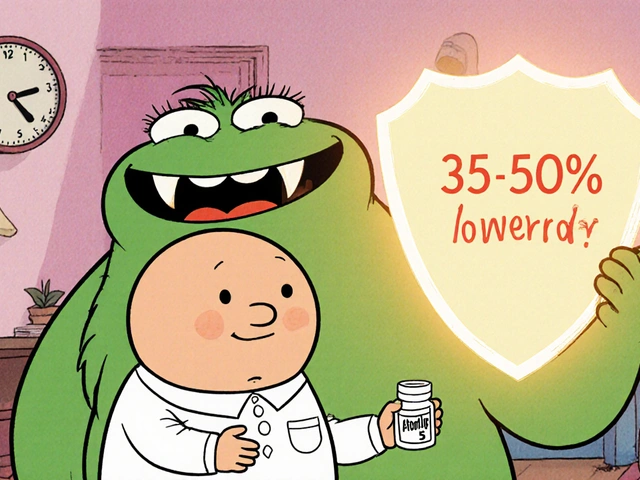Beta Blockers: What They Are, How They Work, and What You Need to Know
When your heart races too fast or your blood pressure climbs unexpectedly, beta blockers, a class of medications that slow down the heart and reduce blood pressure by blocking adrenaline effects. Also known as beta-adrenergic blocking agents, they’re one of the most common prescriptions for heart-related issues and even anxiety. These drugs don’t cure anything—they just take the edge off. They tell your body to calm down, literally. No magic, no miracles. Just science that’s been used for over 60 years.
They work by blocking beta receptors in your heart and blood vessels. These receptors normally respond to adrenaline—the hormone that makes your heart pound during stress or exercise. When beta blockers step in, they reduce heart rate, lower blood pressure, and decrease the heart’s demand for oxygen. That’s why they’re used for hypertension, chronic high blood pressure that strains the heart and arteries, angina, chest pain caused by reduced blood flow to the heart, and even after a heart attack to prevent another one. Some doctors also prescribe them for tremors, migraines, and performance anxiety because they quiet the physical symptoms of stress.
Not all beta blockers are the same. Some target the heart only (like metoprolol), while others affect blood vessels too (like carvedilol). Some are short-acting, others last all day. Your doctor picks one based on your condition, other meds you take, and how your body responds. Side effects? Fatigue, dizziness, cold hands, and sometimes slowed heart rate—but for most people, these fade as the body adjusts. What you won’t find in most ads: beta blockers aren’t first-line for everyone anymore. Guidelines now often recommend other drugs for high blood pressure unless you have heart disease, arrhythmias, or a history of heart attack.
You’ll see them mentioned in posts about blood pressure management, heart safety, and even how certain HIV drugs like efavirenz can raise blood pressure and make beta blockers necessary. They show up in discussions about fall risk in seniors, because dizziness from these meds can increase injury chances. You’ll also find comparisons with other heart meds, like calcium channel blockers or ACE inhibitors, when people weigh options for long-term control.
What’s missing from most websites? Real talk about when to stop them. Some people take beta blockers for years without knowing why. Others quit cold turkey—dangerous, because that can trigger rebound high blood pressure or chest pain. If you’re on one, you need to know how to adjust, when to call your doctor, and what symptoms mean trouble. That’s what these posts deliver: clear, no-fluff guidance based on how these drugs actually behave in real patients, not just in clinical trials.
Below, you’ll find practical comparisons, safety tips, and real-life scenarios about how beta blockers fit into broader treatment plans—whether you’re managing heart disease, dealing with side effects, or just trying to understand why your doctor prescribed them. No jargon. No marketing. Just what you need to know to use them safely and effectively.





